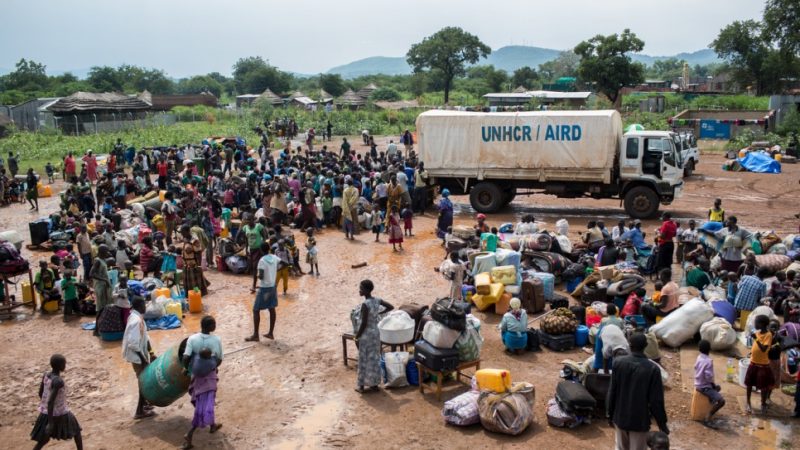This material belongs to: The Observer.
The EU delegation in Uganda said yesterday (5 February) it has identified allegations of malfeasance and corruption in managing refugee assistance programs in Uganda, and had alerted the country’s government.
EU funding has been provided to two UN agencies, the United Nations High Commissioner for Refugees (UNHCR) and the World Food Programme (WFP). The EU delegation says in a statement it has identified the “troubling allegations” together with its partner agencies and had formally submitted the case to the EU’s anti-fraud office OLAF.
Ugandan authorities also said they were investigating allegations of widespread fraud in its refugee aid programme, as the UN also raised concerns over human trafficking in Ugandan camps.
“The office of the prime minister has received reports alleging that there could have been acts of mismanagement of funds and other resources meant to cater for refugees and host communities in the country,” said Musa Ecweru, Uganda’s minister of state for relief, disaster preparedness and refugees.
“Government has already commenced measures to investigate these reports with a view to taking action against any culprits,” he said.
Aid workers have long suspected the government of inflating refugee figures in order to attract more aid which is then syphoned off by corrupt officials.
“Let’s say you say there are 1,000 refugees but in fact there are only 800 of them, then the food and relief for 200 you can go and sell,” one aid worker explained on condition of anonymity.
Uganda has been widely praised for its progressive refugee policy.
It claims to house 1.4 million refugees, a million of whom have fled the ongoing civil war in South Sudan.
Uganda has welcomed refugees, giving them land and the opportunity to work, in stark contrast to many richer nations.
Only last week, UN refugees chief Filippo Grandi hailed Uganda for having, “one of the most progressive policies for refugees, not only in Africa but also in the world”.
But diplomatic sources told AFP that one large Western donor has already suspended aid because of the graft allegations, and others are threatening to follow suit.
The donors are demanding the implementation of a UN-controlled biometric system of refugee identification.


